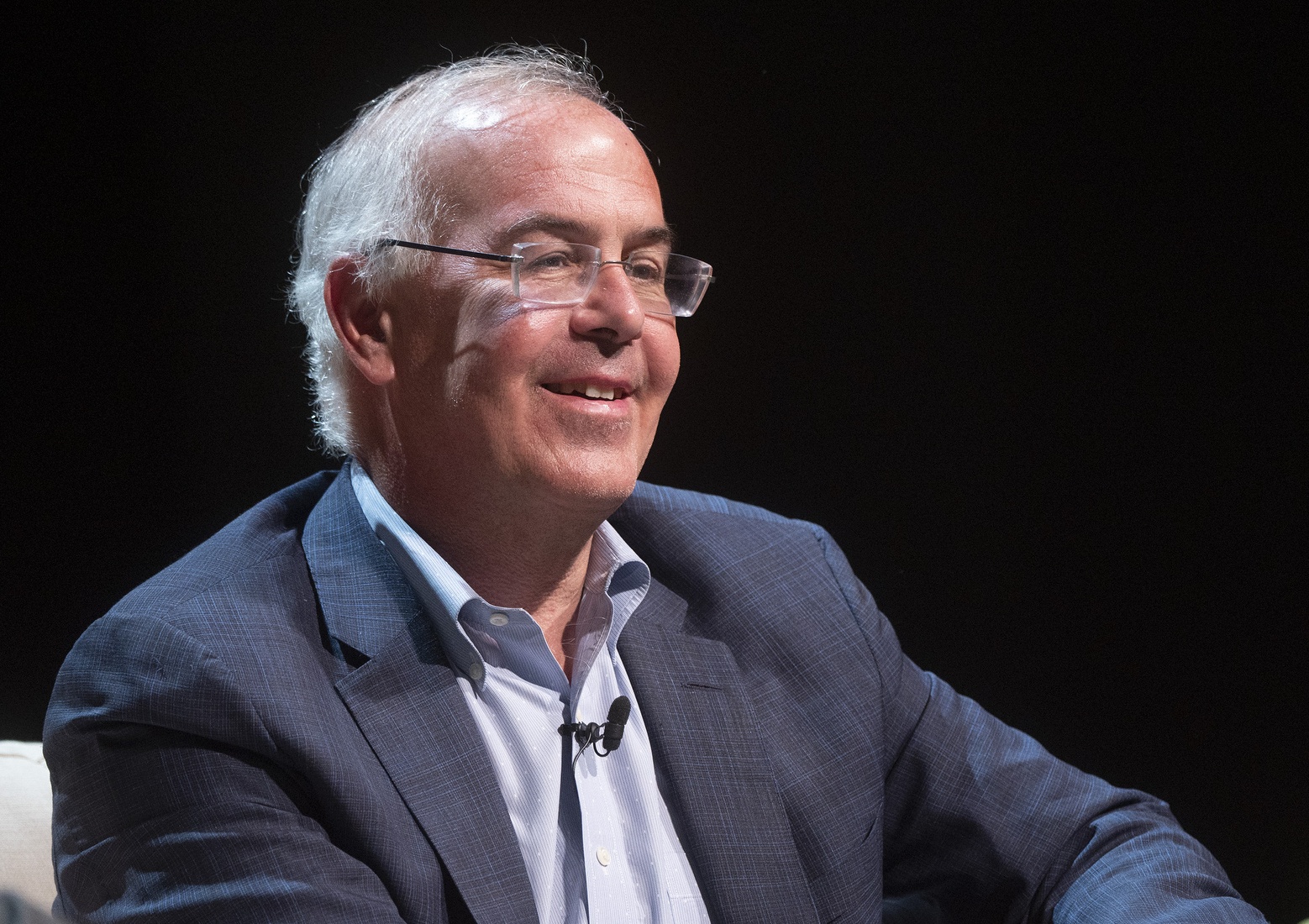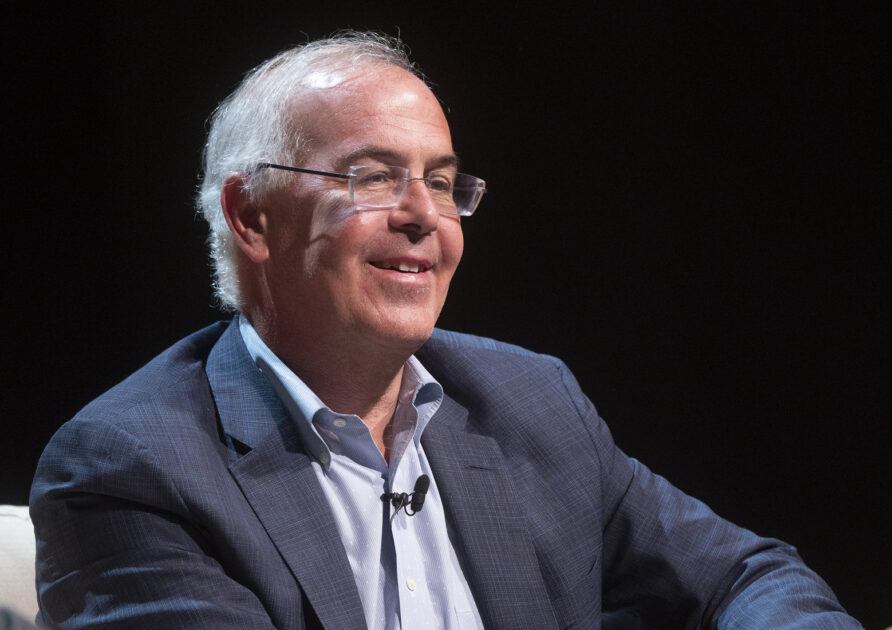






























































Photograph Source: Jay Godwin – Public Domain
I really did not want to waste my time writing about David Brooks just now. When Donald Trump is threatening democracy, the rule of law, and just about everything else that is decent about this country, I hate the idea of wasting time pissing on David Brooks. Unfortunately, I think it is necessary.
Brooks persists in pushing a lie that bears considerable responsibility for getting us Donald Trump. In a piece titled “Can We Please Stop Lying About Obama?,” Brooks tell us that trade was no big deal and we should just get over it. Sorry folks, trade was a big deal and the people who try to tell you otherwise are the liars.
There is a simple story, which is true, that Brooks uses to paper over the harm down by trade. The simple story is that manufacturing has been falling as a share of total employment since the 1970s. It was even falling in countries with large trade surpluses, like Germany and Japan.
The reasons are straightforward. As we get richer, we spend more money on services, like going to restaurants and travel, and proportionately less on goods. In addition, manufacturing tends to have more rapid productivity growth than services, which means we need fewer workers in manufacturing to produce the same amount of output.
That explains why manufacturing has been declining as a share of total employment in the United States and pretty much everywhere else. But that doesn’t explain the pattern we have seen in the United States.
From 1970 to 2000, while there were cyclical ups and downs, manufacturing employment only fell by a bit more than 200,000, or 1.0 percent, over a thirty-year period. From December of 2000 to December of 2009, we lost 5.8 million manufacturing jobs, roughly one-third of total employment in the sector.
That was not just the same pattern we had been seeing over the prior 30 years or the subsequent 15 years. This was a period when the trade deficit exploded, hitting 6.0 percent of GDP in 2005.
The people who try to say either that this massive loss of manufacturing jobs was no big deal, or it had nothing to do with trade, are the liars. And the victims have every right to be angry over such lies.
To be clear, there is no going back, as I and others have written. Donald Trump’s dream of re-industrializing America is absurd on its face. It’s not going to happen, and it would not be a particularly good thing even if it did.
Manufacturing jobs are no longer especially good-paying jobs. The historic wage premium enjoyed by workers in the sector has largely disappeared, primarily because it is no longer a heavily unionized sector.
It was the unions that made the jobs good, not the factories. And the unions are largely gone.
But this is only the start of the lies that the elites have pushed. We hear endless tales about the merits of “free trade.” The tales are largely true, but we don’t hear free trade talked about everywhere.
For example, there is very little discussion of free trade in highly paid professional services, like those of doctors and dentists. Our doctors get paid more than $350,000 a year, roughly twice what their counterparts in countries like Germany and France get paid.
We could have free trade that would make it far easier for doctors trained in other countries to practice in the United States. If we could get their pay down to Western European levels it would save us more than $100 billion a year, roughly $800 per household.
But they won’t let you talk about this type of free trade in the New York Times. It apparently would be too upsetting for its readers.
In all our trade agreements over the last four decades we have included provisions that make patent and copyright monopolies longer and stronger. However much people who read the New York Times might like them, patents and copyrights are government-granted monopolies, 180 degrees at odds with free trade.
Instead of making these monopolies longer and stronger, we could have had “free trade” agreements that made them shorter and weaker. We could also look to alternative mechanisms to finance innovation and creative work, like direct public funding.
We will spend over $700 billion this year on prescription drugs and other pharmaceutical products. If these items were sold in a free market without patent monopolies and other protections, we would likely pay close to $100 billion. The savings of $600 billion would be close to $5,000 for every household. But they won’t let you talk about this fact in the New York Times either.
And while we are on the topic of lies about the economy, we should also talk about the bailouts of the financial industry following the collapse of the housing bubble in 2008-2010. We were constantly told that we had to bail out Citigroup, Bank of America and the rest because otherwise we would face a second Great Depression. This was a lie.
We know the secret for getting out of a depression. It’s called “spending money.”
We finally escaped from the first Great Depression with the massive spending associated with World War II. But there is no magic to spending on war. If we had massive spending to build up our infrastructure, our health care system, and our education system, we could have gotten out of the Great Depression in 1931 rather than 1941.
We didn’t need to bail out our bloated financial system. We could have let the market work its magic and hugely downsize the financial industry, eliminating many of the great fortunes that originated there. But they wouldn’t let you say that in the New York Times either.
Brooks is apparently upset that people lie about the economy. So am I. Unfortunately, most of the lies justify the status quo and they won’t let anyone point this fact out in the New York Times.
This first appeared on Dean Baker’s Beat the Press blog.
The post Can David Brooks Stop Lying? appeared first on CounterPunch.org.
This post was originally published on CounterPunch.org.